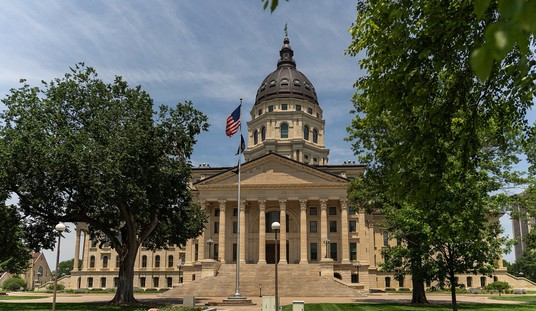We are fast approaching the end of the fourth month of the Biden Administration, and there still has been no announcement of a nominee to fill the position of Ambassador to Israel.
President Trump announced during his transition that David Friedman would be his nominee to be Ambassador to Israel. The Senate held a confirmation hearing on February 16, 2017, and a vote of the Foreign Relations Committee took place on March 9 with Friedman’s nomination being sent to the Senate floor 12-9. Friedman was confirmed by the Senate on March 23.
That process demonstrated the importance that the Trump Administration placed on the relationship between the United States and Israel.
Three weeks ago it was reported that former State Department official Robert Nides was in line to be the Biden Administration’s nominee.
Among Obama Administration State Department alums – he was deputy secretary of state for management and resources – Nides was considered a pro-Israel voice, and someone the Israelis often turned to in the Obama Administration to have their voice heard.
Israel and Hamas have been engaged in a hot – and growing hotter – shooting war in and around Gaza for a week, yet no nominee to represent the United States in Jerusalem has yet been named.
And that might be a big part of the problem.
Nide’s reputation, combined with the Trump Administration’s move of the Embassy to Jerusalem, might be the cause of resistance to Nides’ nomination with Democrat Senators and Democrat party interest groups.
The issue of having moved the Embassy to Jerusalem cannot be dealt with by the Biden Administration through caving in to demands that it be moved back and leasing office space for the State Department in Tel Aviv.
After politicians of both parties paid lip service to the issue for decades, President Trump moved the US Embassy to Jerusalem.
But what is not widely known or understood is that in having done so, President Trump was following the requirements of a 1995 law passed by Congress and signed by President Clinton. That law required the US Embassy be moved to Jerusalem unless there was a Presidential finding — required to be made every six months — that such a move would have an adverse impact on the ongoing “peace process,” whatever that may have described being at the time of each such finding.
Over the course of two and one-half decades, Presidents Trump, Bush, and Obama dutifully made the requisite finding twice yearly to kick the can down the road on moving the Embassy to Jerusalem.
Pres. Trump decided that 43 waivers in a row were enough, and announced in December 2017 that there would not be a 44th waiver in the summer of 2018. So the folks in the Embassy started packing their bags, and they moved to Jerusalem when the summer of 2018 arrived.
The problem facing the Biden Administration is that the confirmation process for any US Ambassador is going to draw calls for moving the US Embassy from Jerusalem back to Tel Aviv, and the Biden Administration nominee is going to need to address that question.
But having the Embassy located in Jerusalem means it is now in compliance with US law, and any effort to force a relocation of the Embassy would be in violation of US law. So the nominee will not be able to join in the chorus that is certain to rise from the radical anti-Israel wing of the Democrat party.
While there is certainly a long list of Democrats in the House, led by the anti-semites in “The Squad,” who might want to push legislation through the House to reverse existing law, I’m quite certain there is no sentiment among Senate Democrats to fight that battle.
The only question is how much longer will Biden wait before he does what he knows he needs to do in terms of naming a nominee to the post.













Join the conversation as a VIP Member